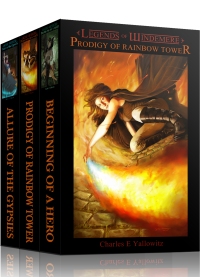So, you want to add some local flavor and history without an info dump done by a spectral narrator. Nothing too much, but you have some stories to tell. The heroes have no idea since they never studied and the villains aren’t interested. Why not create a Bard to do the teaching deed? Well, here are some things to consider.
- Know when to flash the charm and know when to blend in. Bards need to get attention when performing because that’s how they make money. Physical appearance and clothing are a big factor, but don’t forget about verbal charm and manners. They need to be approachable to get new information. Yet, there are times when they can blend into the crowd and listen for rumors. Find the proper balance, but you can shift it depending on the situation.
- Research the Bard’s instrument of choice to give them some level of expertise. You can get away with knowing the basics and a little maintenance, so don’t worry about specific songs and the finer details. That is unless the Bard is one to talk about such things because then it makes sense. Repair is an important factor here because you never know when a drunk will use your lute as a weapon. Takes more than a few extra strings to fix that.
- Put some flash and flowers into that description because nobody is going to pay for a dull Bard. Remember that they’re telling a story and these crowds want to be entertained by the words. It’s a difficult balance to pull off since you have the audience in the book that wants flowing language about their world and readers that might want to the scene to move on. Be poetic in your display to satisfy both and show that the Bard is worthy of his next meal.
- Never be afraid to add a little magic to your new character even if they’re only going to be in one scene. Bards can use tiny incantations to create tiny flames, colored lights, project their voices, and do any number of performance enhancements. That didn’t come out right, but I don’t feel like deleting. Keep in mind that you need magic in the world to make this one work. Another option is non-magical special effects like specifically placed lanterns that bounce off colored prisms on the clothes. I have no idea if that’s a thing.
- Audience reaction is important to a Bard’s line of work. It doesn’t always have to be cheering because that can drown out a song in a tavern. Celebrate certain phrases like the name of a local hero or somebody’s birthday. On the other hand, never ignore the power of enamored silence. Tears welling in the eyes, drinks frozen in mid-lift, and other signs that the Bard’s song is mesmerizing. Remember it isn’t just the song that’s important, but it’s impact on those listening. Not like the reader can hear how beautiful it is and simply saying ‘he played a beautiful song’ doesn’t cut it.
- Animals aren’t always a great way to go with performances. Seriously, you don’t want to unleash a monkey on a tavern. Doesn’t matter how cute the hat is.
- Traveling is very important to a Bard because you can’t get new material by staying in the same spot. This can range from moving around a large city to wandering the countryside. Some may even do both depending on the rumors they have. This creates an explanation for why the Bard has so much more information than the protagonists and your average secondary character.






I wonder if you could just start a Bard booking service and then we could simply rent one for our next book. Fun post.
LikeLiked by 1 person
Maybe. Do I charge by the hour or the song?
LikeLiked by 2 people
Hmm Good question. By the hour I would think.
LikeLike
What about the thief who follows for ‘crowd interactions’?
LikeLike
I love how you put all this thought into development. I’ve been dwelling on a monastery that has a verbal history. That way I don’t have to be poetic, but they could be expecting a valuable donation.
LikeLike
To be honest, I don’t really think a lot on development when I do these kinds of posts. Not in the way one would expect. I just sit and think about pieces of advice that work for the topic. Half of them are ones I haven’t used yet.
LikeLiked by 1 person
I still think it’s darned good advice. I free write most of my posts too.
LikeLike
Sometimes I wonder if the truest stuff comes out of free writing.
LikeLiked by 1 person
Possibly. I think it through, but generally what you see is what you get.
LikeLike
Complete with typos.
LikeLiked by 1 person
Always.
LikeLike
Love John’s idea of a bard booking service. 😀
Great tips about bards! I especially love the tip about them blending in to listen for rumors. Really, they’re all great. But that tip especially makes me want to add a bard to a novel! I don’t have any right now. I know. Sad.
LikeLike
Thought you said a ‘bard cooking service’ there.
It’s a tough thing to do with bards if you think about it. Their jobs require that they stand out, but they also have to know how to blend in at times. This might be why they get painted as ‘Jacks of All Trades’ types.
LikeLike
“Bards can use tiny incantations…” They can basically create a spotlight wherever they’re standing.
LikeLike
Ventriloquism and voice projection spells help too. Another trick is using minor illusions to give a slight visual component to music.
LikeLiked by 1 person
Reblogged this on Don Massenzio's Blog.
LikeLike
Thanks for the reblog. 😁. Hope you’re having a great week.
LikeLiked by 1 person
You’re welcome. It is good. Heading home from Philadelphia today to enjoy a four day weekend.
LikeLike
Awesome. Gotta love those long weekends.
LikeLiked by 1 person
Though tongue-in-cheek, that was surprisingly helpful! It inspired me to redo a Pearseus scene to avoid telling. Thanks!
LikeLike
Very cool. Glad to be of help. How often do you redo published works?
LikeLiked by 1 person
Depressingly often 😀
Seriously, though, I always seem to be working the same books. Others, I haven’t touched since publication date.
LikeLike
It’s hard to redo anything in mine. Change one scene and I might have to change at least one other in another book. That could lead to a third change, so it’s a domino effect for me. Especially so close to the end.
LikeLiked by 2 people
Very interesting. Some great ideas.
LikeLike
Thanks. 😁
LikeLiked by 1 person
Pingback: Writing Links…7/3/17 – Where Genres Collide